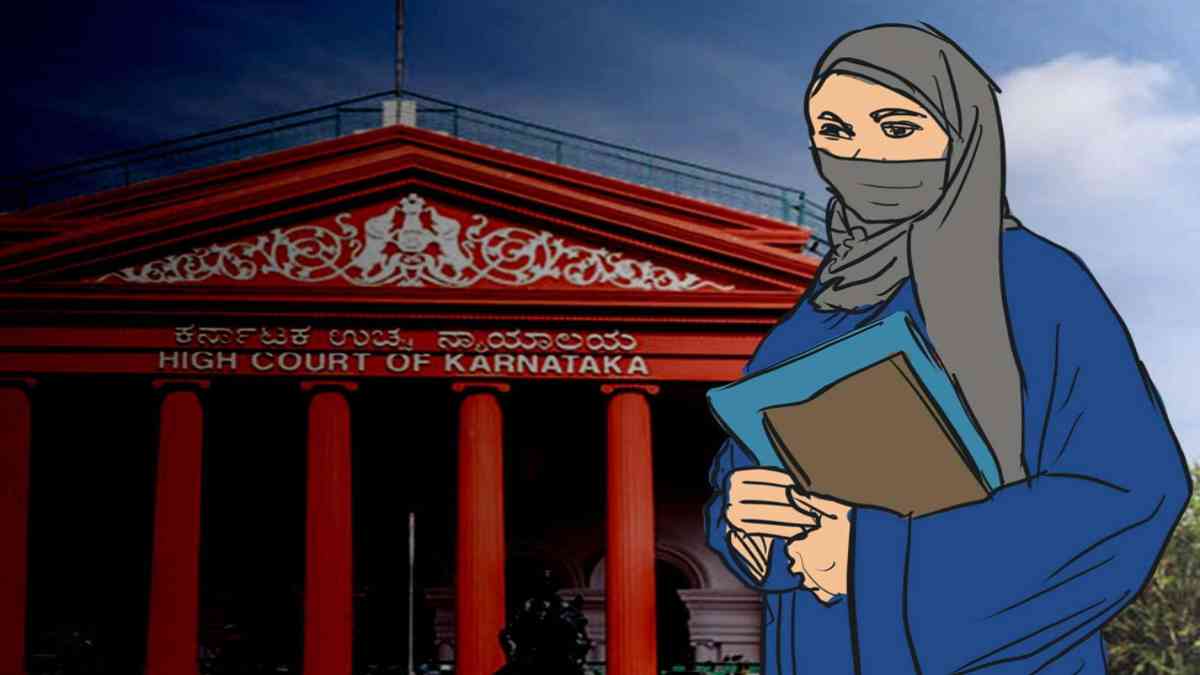Digital Desk: Wearing a hijab is a practice of innocent faith and not a display of religious jingoism, the lawyer representing Muslim students seeking the right to wear the traditional headscarf told the Karnataka high court on Tuesday.
The petition's claims, which have become central to a wider discussion about the display of religious identity in educational institutions and the treatment of minorities in the state, were based on Article 25 of the Indian Constitution.
Also Read: Did you know Bappi Lahiri and Kishore Kumar were very closely related? Read here to know more
“This (freedom of conscience) has a lot of depth in that term. The essence of Article 25 is it protects the practice of innocent faith and not a mere display of religious identity or jingoism,” lawyer Devdatt Kamat said in court, PTI reported.
"This (freedom of conscience) has a lot of depth in that term. The essence of Article 25 is it protects the practice of innocent faith and not a mere display of religious identity or jingoism,” lawyer Devdatt Kamat said in court, PTI reported.
Article 25 gives people the equal entitlement “to freedom of conscience and the right freely to profess, practise and propagate religion” as long as these are subject to public order, morality and health.
On January 13, about two weeks after college administrators issued an order prohibiting the wearing of the hijab in classes, students at Government Girl's Pre-University College staged a protest.
On January 29, the students moved the
Karnataka High Court, but a squabble had already erupted in the southern state and numerous other regions of the country.
“To counter that (hijab), if somebody wears a shawl (saffron shawl), they will have to show whether it is a display of religious identity alone, or is it something more. If it is sanctioned by Hinduism by our Vedas, Upanishads, our scriptures, our lordships are duty bound to protect it. If not, then the Article 25 does not protect,” Kamat argued
Kamat, who finished arguments on Tuesday, made his point by citing many decisions from other nations, including South Africa and Canada.
He also mentioned the instance of Sonali Pillai, who went to court to contest her school's rule prohibiting her from wearing a nose ring. Pillai, according to Kamat, won the case.
The petitioners have argued against a government decision issued on February 4 that specifies that schools and colleges would continue to follow the specified procedure that was in place at the start of the academic year. That example, if a school or institution permitted hijab, the practise would persist, causing uncertainty and contention among the petitioners.
According to Ravi Varma Kumar, a lawyer representing a part of the students, the government directive further stated that the college development committee (CDC) will prescribe uniforms and that clothing that does not harm public order should not be worn until then.
Advocates for the petitioners have maintained that wearing the hijab or burqa in public settings does not endanger public order.
“Education Act is a complete code. This college development committee is a non-existent body under the statute. It is an extra-legal authority which is now endowed with the power to prescribe the uniform, contrary to the scheme of the act and letter of the rules,” Kumar said, according to Livelaw.
The administration imposed the closure of all schools and universities in the state for three days beginning last Wednesday after students from the same institutions clashed, proclaiming their religious identities.
In an order issued last Thursday, the Karnataka High Court mandated that schools reopen, but that no religious clothing be worn until the dispute is resolved.

Leave A Comment